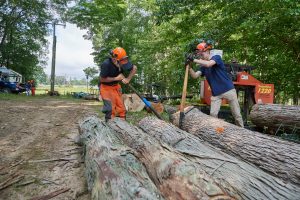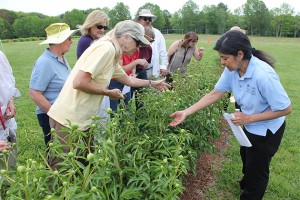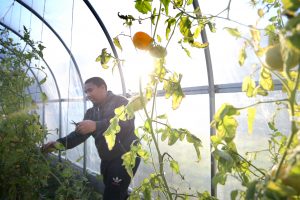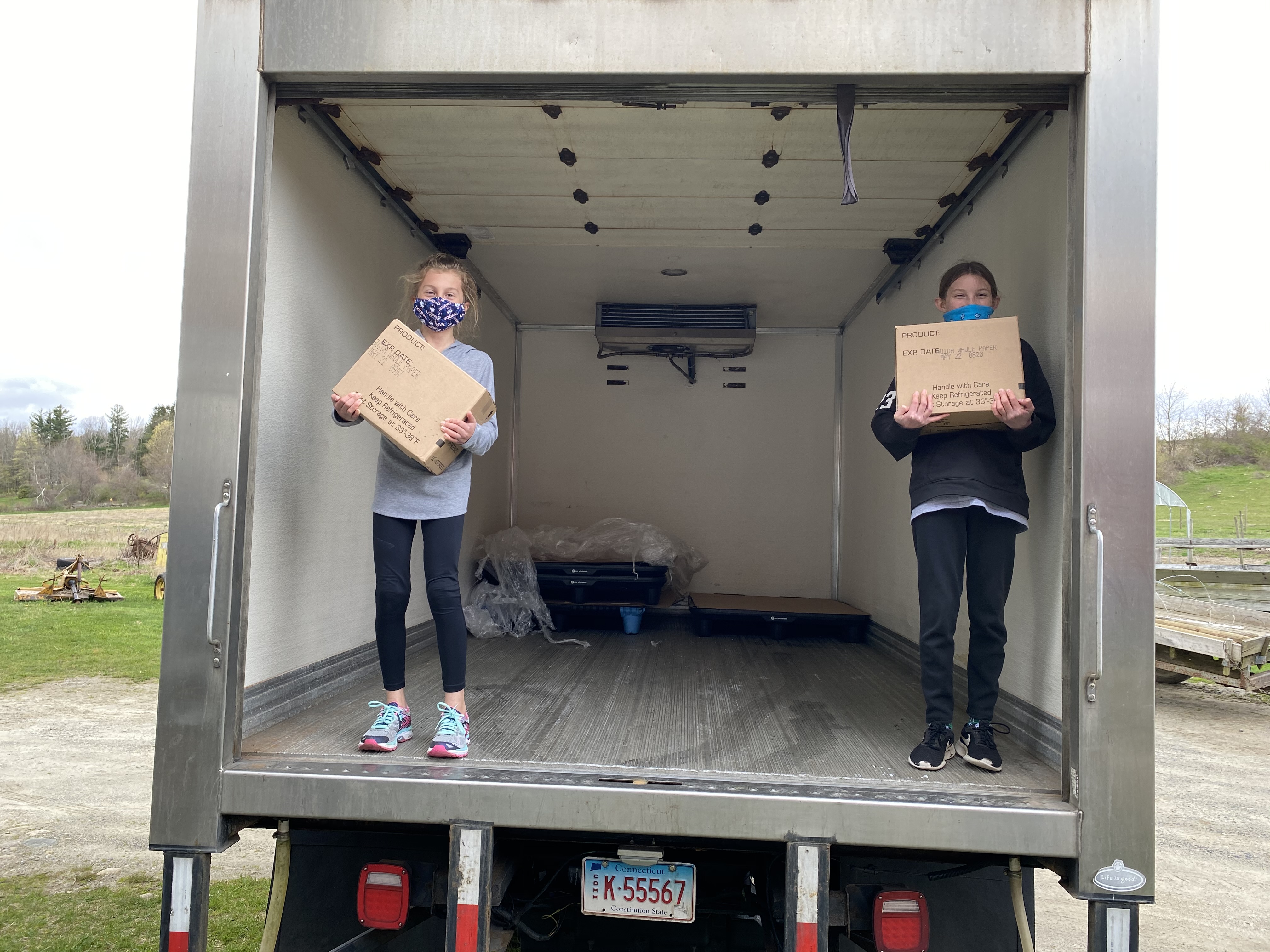When Patricia Spofford left Cheshire Correctional Institution after teaching her first class there in 2018, she says she breathed in the Saturday morning air and reflected on how the men she’d just been with didn’t have the same liberty.
Yet even though they were incarcerated, including some who would remain there for years more, they wanted to better themselves, she says, and looked to her and a UConn Extension program to do just that.
“I knew every time I showed up that I’m making a difference,” says Spofford. “The prisoners were so appreciative of the fact that I would come in on Saturday mornings and meet with them for two hours and teach them about values and spirituality, how to cope with confinement, communication skills, ways to tell an employer about their background, and how to write a resume and interview for a job.”

UConn People Empowering People at Correctional Institutions, known colloquially as Prison PEP, is just one in a catalog of UConn Extension programs run through the College of Agriculture, Health, and Natural Resources. Many center on agriculture-related topics, including Extension’s popular Master Gardener classes and food safety workshops. Others, like UConn 4-H, boast STEM, healthy lifestyle, community service, and leadership lessons in addition to traditional agricultural pursuits.
But some, like Prison PEP and its PEP Communities counterpart, extend into the wider community, seeking to engage populations interested in refining certain skills.
“We always work hand-in-hand with what a community’s needs are,” says Bonnie Burr ’83 (CAHNR), assistant director and department head with the Department of Extension in CAHNR. “We do a lot of surveying out in the community. Historically, we have worked around food insecurity, food safety, and we’ve always worked extensively with the agricultural industry – whether it’s plants, animals, turf, even robotics now with dairy. We also have a strong team around climate change and climate adaptation/climate resilience.”
Half of Extension’s budget comes from grants, or $21.4 million in 2020, and volunteers, like Spofford, offer the equivalent of around $4.4 million in labor annually from the roughly 142,000 hours they put in. Extension provides 2,800 programs in all 169 municipalities around the state, some that people may not even realize have their roots at UConn.
Burr says Extension has a hand in training farmers how to harvest and keep their fruits, vegetables, and meat safe for sale at farmers markets; working with municipal officials on managing stormwater runoff and keeping road salt out of the groundwater; testing water quality at schools; offering students after-school programming; getting Connecticut-grown produce into school cafeterias; and inventorying the state’s trail system so municipal planners can maximize economic development.
“It’s things like that, that we do behind the scenes, that people wouldn’t necessarily think we’re involved with,” says Burr. “We really focus on networking with people and making those connections, so a community has the opportunity to flourish in ways it hasn’t before.”
One prime example came about during the early months of the COVID-19 pandemic, when Extension educator and Litchfield County 4-H coordinator Bill Davenport ’86 (CAHNR) constructed Operation Community Impact and through it donated, to date, 220,000 pounds of dairy to food pantries statewide when demand from restaurants, schools, and hotels was nil.
“Those are the sorts of things we can do with Extension,” says Burr. “We’re flexible, we can pivot quickly to identify needs.”

The Cooperative Extension System is a nationwide initiative that dates to the early 1900s when the Smith-Lever Act of 1914 linked the federal government and land grant universities for the benefit of the country’s rural communities.
Senior Associate Dean for Extension and Diversity in CAHNR Michael O’Neill says Extension was developed to take the science and engineering ideas that were coming out of universities and deliver them to rural communities in the U.S. Today, there are 130 institutions that host Extension systems, including UConn.
He’s particularly proud of the recent effort through UConn Extension to engage students from across the University’s various schools and colleges in outreach work in communities. Engineering students working as Extension interns might assist a town on a geospatial project by collecting high-resolution imagery for land use purposes, for instance.
That internship program started with four students and now has between 15 and 20 annually who, in addition to their community work, take a leadership training course and meet with UConn’s Center for Career Development to talk about employment strategies, like describing on a resume the skills learned during their project.
It benefits both the community and student and meets the goal of Extension – reaching out.
“At the end of the day there’s something really special about the opportunity to help a farmer, or help a community, or help a family, and see it in their faces when you’re done that you made a difference,” says O’Neill. “I think all of our Extension people feel that when they work with young people, senior citizens, people in prison, wherever, they get that real satisfaction of just helping to solve a problem or at least move people closer to those solutions and do it with science.”
Burr says that when she started with Extension, a mentor described it like this:
“Extension is a lot like missionaries, a lot like Peace Corps. You go into a community and you do whatever you can to take care of them. You listen to what they need, you see if you can help make a network. There will never be enough of you, there will never be enough money to do the work you need to do. But you’re just going to keep doing it because you recognize that community is what’s really important for all of the families and businesses you work with.”
Spofford says one man who participated in Prison PEP had been incarcerated for 20 years, never was able to find the dedication to complete a growth program, and told her after the first Prison PEP class that he wanted to graduate from this one.

Then he missed the next session.
On the third week, he explained the guards wouldn’t let him out of his unit because his name wasn’t on the approved list, and he didn’t have permission to leave. Spofford says he pleaded with her to seek him out and check with the guards if he was absent again, but he wasn’t. He finished Prison PEP and went on to be a mentor in other programs that he later completed.
“That to me is success because hopefully he will take it forward when he leaves prison,” she says.
Again, that harkens to Extension’s mission.
“If a person is healthy, it helps their community; if they’re active, it helps their community; if they’re knowledgeable about things like stormwater or the environment, it helps their community. All of those Extension education programs are hopefully helpful to them as individuals, but that same value then gets spread in their community,” O’Neill says.



